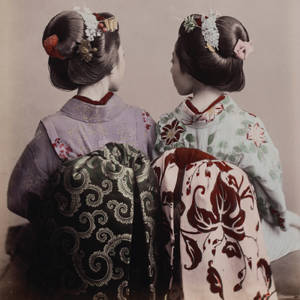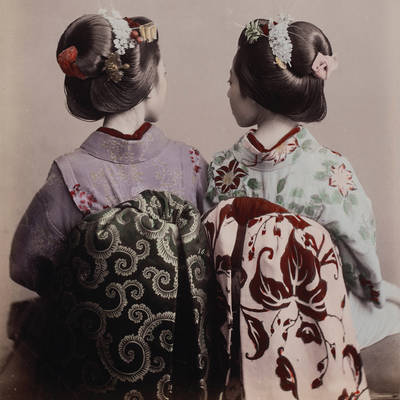
- Afhalen na 1 uur in een winkel met voorraad
- Gratis thuislevering in België vanaf € 30
- Ruim aanbod met 7 miljoen producten
- Afhalen na 1 uur in een winkel met voorraad
- Gratis thuislevering in België vanaf € 30
- Ruim aanbod met 7 miljoen producten
Japan on a Glass Plate
The Adventure of Photography in Yokohama and Beyond, 1853-1912
Sebastian DobsonOmschrijving
- Unique glimpse into a pivotal moment in Japanese cultural history and the history of photography
- Unique selection of 19th-century photographs of Japan, many of which are shown here for the first time
- Lavishly illustrated, with an extensive introduction on the historical context
Between the twilight years of the Tokugawa shogunate (1603-1867) and the end of the Meiji Era (1868-1912) that followed it, photography offered a unique insight into the rapid transformation of Japan from an isolated, feudal society to a modern, industrialized state. In the four decades that followed the opening of the country in 1853, the camera evolved from an imported novelty to a familiar witness of Japanese daily life. Operating from the Treaty Ports of Yokohama and elsewhere, early practitioners of photography plied an often precarious trade in images of Japan and laid the foundations of what would soon become a highly competitive industry with a global reach. Whether cherished as souvenirs of an exotic land of fond imagination or curated as visual documents of a fast-changing society, these images by foreign and Japanese photographers, often packaged in exquisitely produced albums, enjoyed a wide circulation abroad and played an important role in influencing perceptions of Japan in the West well into the early 20th century. Drawing from an extensive private collection assembled over many years, this book presents a unique selection of 19th century photographs of Japan, many of which are published here for the first time.
Specificaties
Betrokkenen
- Auteur(s):
- Uitgeverij:
Inhoud
- Aantal bladzijden:
- 224
- Taal:
- Engels
Eigenschappen
- Productcode (EAN):
- 9789493039995
- Verschijningsdatum:
- 8/12/2023
- Uitvoering:
- Hardcover
- Formaat:
- Genaaid
- Afmetingen:
- 259 mm x 274 mm
- Gewicht:
- 1437 g

Alleen bij Standaard Boekhandel
Beoordelingen
We publiceren alleen reviews die voldoen aan de voorwaarden voor reviews. Bekijk onze voorwaarden voor reviews.











